The Computer Science and Engineering (CSE) Distinguished Alumni Award recognizes a CSE alumna or alumnus who has distinguished herself/himself as a leader through professional contributions, public service, and personal accomplishments.
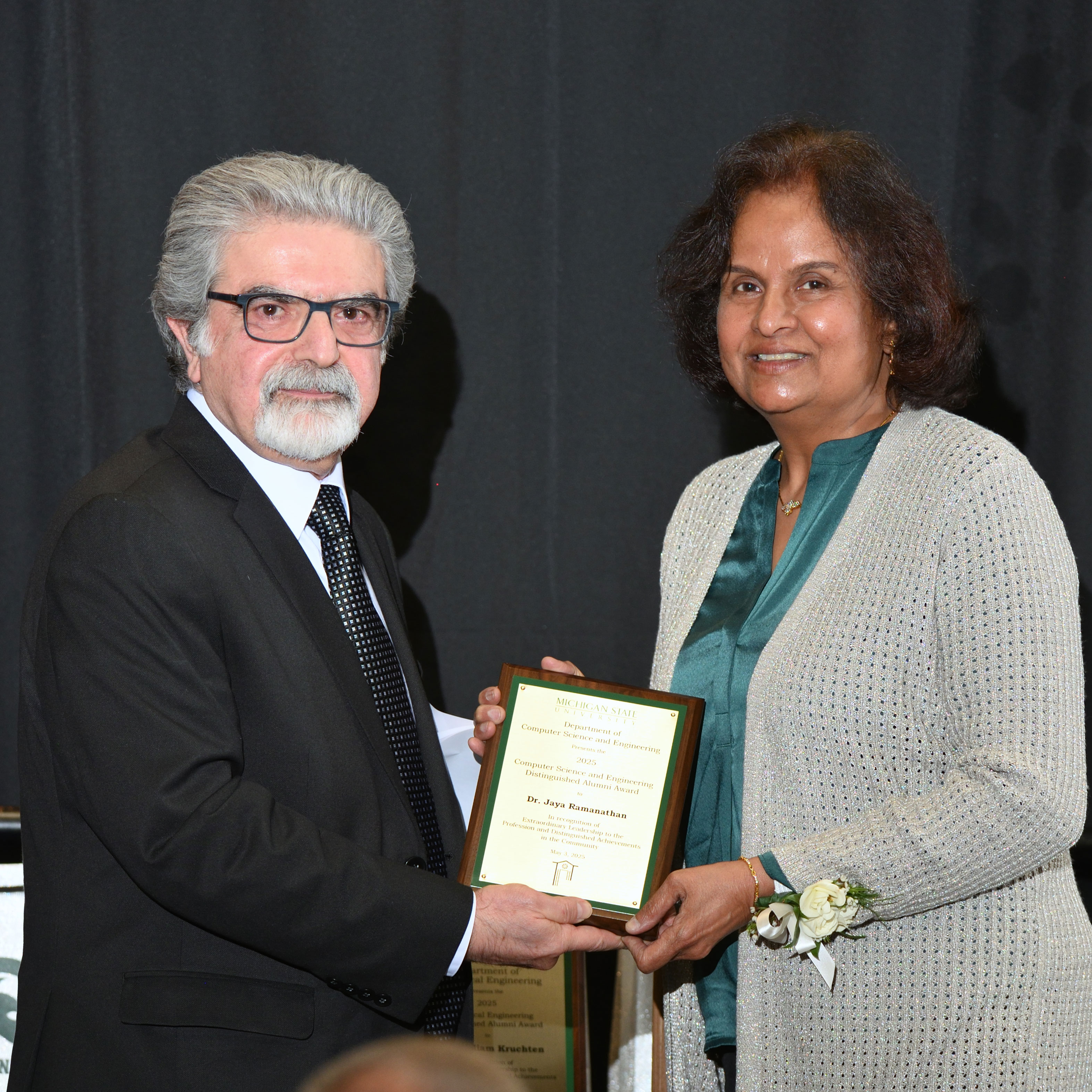
2025
Jaya Ramanathan
Jaya Ramanathan created a first in the MSU College of Engineering. She was the first female to graduate with a Ph.D. in the Department of Computer Science and Engineering.
Since her graduation, she has held significant leadership and technically innovative roles within IBM and Red Hat, while being a dedicated mentor to many in STEM.
As a distinguished engineer at IBM and Red Hat, she held chief architect roles for various security related technologies, cloud security, and governance. She has served as a panelist in leading industry conferences and analyst conversations. She also led the creation of industry best practices in her area of expertise.
Since retiring, she has been writing about her nature experiences for various non-profit organizations. Her two children are now pursuing their own STEM careers.
She received a master’s degree in computer science from the Indian Institute of Technology, Mumbai, India, and a Ph.D. from MSU in 1992.
Beyond her professional and academic achievements, she has remained deeply committed to giving back to the community. She actively volunteers her time to support STEM education and an innovative future in technology.
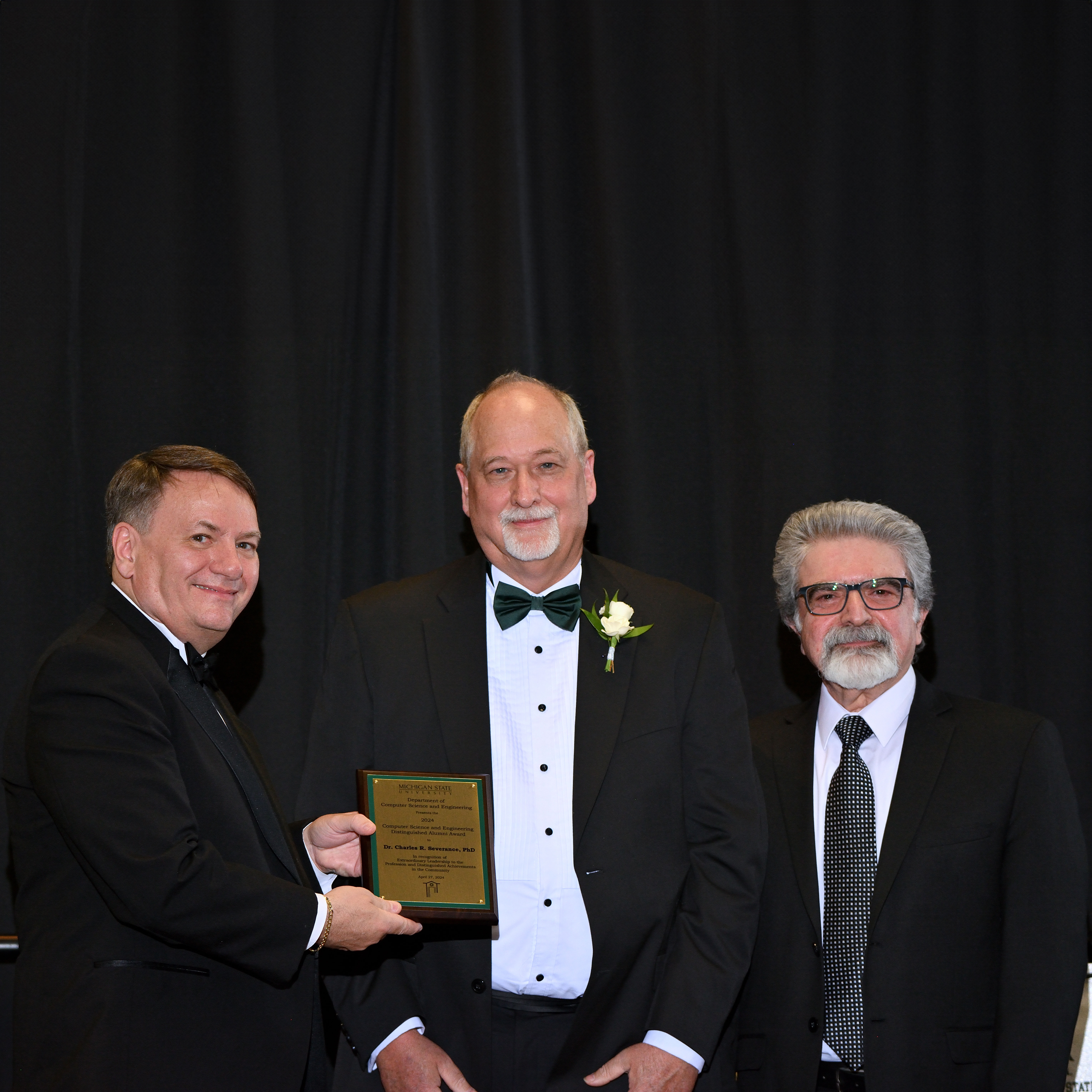
2024
Charles R. Severance
Severance is a long-time advocate for open-source educational technology and resources to empower teachers. He is a clinical professor for the University of Michigan’s School of Information and a founding faculty member of the Informatics Concentration.
He teaches several online courses, including “Python for Everybody,” one of the most popular online program courses in the world.
Severance is also chair of the Sakai Project Management Committee (PMC). He was previously executive director of the Sakai Foundation and chief architect of the Sakai project. He also has experience with the IMS Global Learning Consortium and its promotion and development of Learning Tools Interoperability (LTI) for teaching and learning technology.
Severance was the editor of the “Computing Conversations” column in the IEEE Computer Magazine from 2011-17 that featured monthly interviews with computing pioneers. He has written several books, including "Using the Google App Engine," "Python for Everybody," "Sakai: Building an Open-Source Community,” and “High Performance Computing.” Severance produces a podcast on privacy.
Severance has co-hosted several TV shows including “Nuthin but Net,” produced by MediaOne. He also is involved in a nationally televised program about the internet called “Internet: TCI,” considered the first TV show dedicated to the internet.
For more than 10 years, he served as an internet and technology expert for a live call-in radio program on WKAR, a public station serving MSU and the surrounding East Lansing community.
He has bachelor’s, master’s, and Ph.D. degrees in computer science from MSU and enjoys several hobbies including auto racing, off-road motorcycle riding, karaoke, and hockey.
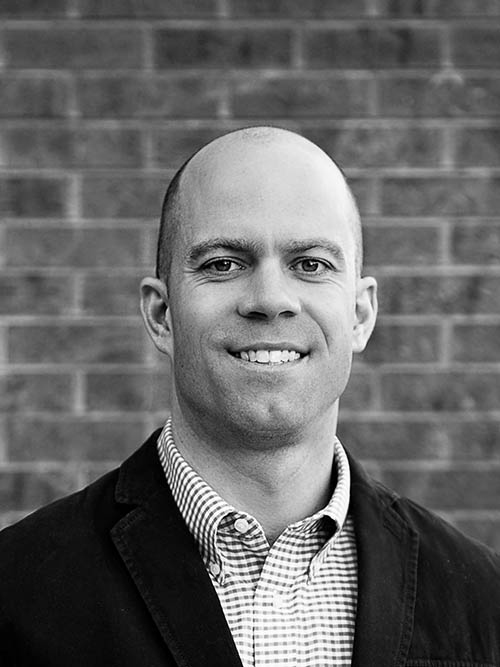
2023
Brendan Klare
Brendan F. Klare is the co-founder, president, and chief scientist of Rank One Computing, a leading provider of facial recognition, computer vision, and machine learning algorithms to the U.S. Government, state and local law enforcement agencies, the financial sector, and other industries. Rank One is employee-owned and located in Denver, Colorado.
He received his Ph.D. in computer science from MSU in 2012, where he published dozens of peer-reviewed articles on the topic of automated face recognition and pattern recognition algorithms with his adviser, University Distinguished Professor of Computer Science and Engineering Anil K. Jain.
Before founding Rank One, he served as a subject-matter expert consultant on the use of automatic face recognition algorithms for the U.S. Department of State, the Federal Bureau of Investigation, the U.S. Department of Defense, and the Intelligence Advanced Research Projects Activity (IARPA).
Prior to his academic studies, Mr. Klare served as an infantryman in the 75th Ranger Regiment, U.S. Army. He received master’s and bachelor’s degrees in computer science from the University of South Florida.
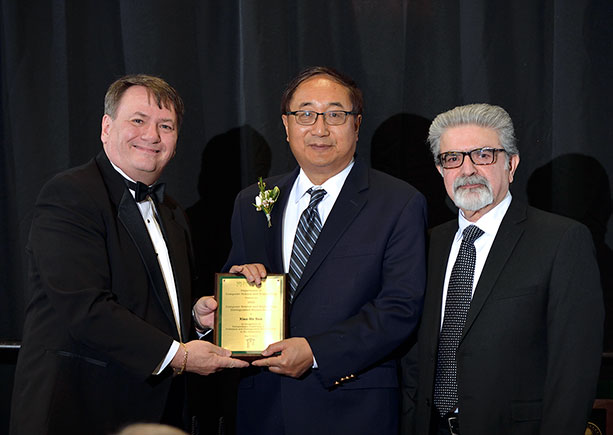
2022
Xian-He Sun
Xian-He Sun is a University Distinguished Professor and the Ron Hochsprung Endowed Chair of Computer Science and former chairman of the Department of Computer Science at the Illinois Institute of Technology (Illinois Tech).
After receiving his Ph.D. degree at MSU, he served as a post-doctoral researcher at the Ames National Laboratory, a staff scientist at ICASE, NASA Langley Research Center, an ASEE Fellow at the U.S. Navy Research Laboratories, and a tenured associate professor at Louisiana State University - Baton Rouge. He joined Illinois Tech in 1999.
His current research interests include parallel and distributed processing, memory and I/O systems, software systems for Big Data applications, and performance evaluation and optimization.
He is a prominent scholar in high performance computing (HPC), with a spread expertise in computer system software, architecture, and performance modeling. He has published more than 300 research articles, book chapters, and books in the field and has six U.S. patents. His memory-bounded (also called Sun-Ni's law) and memory access delay performance models are introduced in many modern textbooks and are considered critical in the performance evaluation of scalable computing systems.
His recent work, the Concurrent Average Memory Access Time (Concurrent-AMAT) model, is considered by many as an essential tool for solving big data problems. His algorithms and software systems have been adapted by widely used commercial and open-source software libraries. He is currently leading multiple federal funded multi-institutional large software development projects in HPC I/O system developments. His citation count is more than 24,000 based on Google scholar.
He was named an IEEE Fellow in 2012 for his contribution in scalable computing. He has been an editor of eight international professional journals and provided leadership for numerous international conferences and workshops. His recognitions include the IEEE CS Golden Core Award and the ACM SIG Governing Board Service Award.
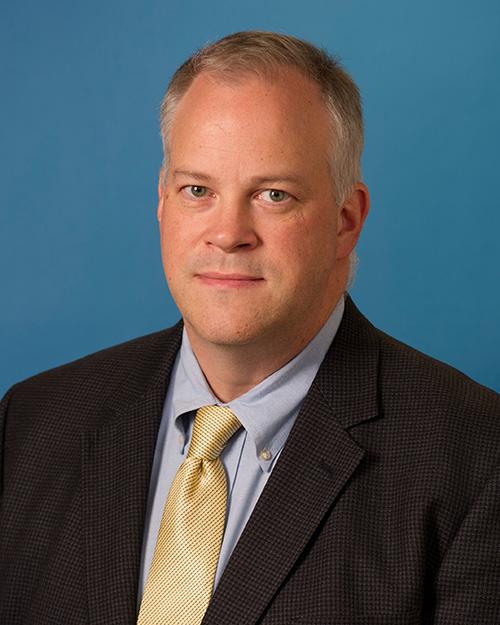
2021
Patrick J. Flynn
Flynn earned a bachelor’s degree in electrical engineering at MSU in 1985, followed by a master’s degree in 1986 and Ph.D. in 1990, both in computer science at MSU.
During his years at MSU, he lived in six different residence halls as well as three different off-campus apartment complexes - since he was enrolled in classes or conducting research at MSU continuously from September 1981 through March 1990. He took one three-month break for an internship in 1987.
He started research work at MSU in 1984 in the biomedical signal processing laboratory operated by Marvin Siegel and Roland Zapp in the Department of Electrical Engineering and Systems Science. From 1986 to 1990, he worked in the PRIP Lab and completed his dissertation under the direction of University Distinguished Professor of Computer Science and Engineering Anil Jain.
At the start of graduate school, he met Laurie Starr (MS '86) in an advanced matrix theory class. After an MSU courtship involving many dates at El Azteco, they married in 1988.
Flynn held faculty positions at Notre Dame (1990-1991, 2001-present), Washington State University (1991-1998), and Ohio State University (1998-2001). In 2007-2008, he held a visiting scientist appointment at the National Institute of Standards and Technology during a sabbatical leave.
In 2016-2017, Flynn served as Provost Fellow and Director of Notre Dame California, with oversight for all of Notre Dame's research and educational activities in the state. During that year, he designed and led the pilot offering of the Silicon Valley Semester, which enrolls Notre Dame students in a semester of full-time coursework and part-time internship work at a variety of Bay Area companies.
His research interests include computer vision, biometrics, and image processing. He has advised or co-advised 21 Ph.D. dissertations, 10 postdoctoral fellows, 21 master’s theses and two bachelor’s theses. His research has produced two patents and one commercial technology license. He has been involved in several entrepreneurial ventures including several start-up companies, one of which won Notre Dame's McCloskey Business Plan competition in 2013.
He is an IEEE Fellow, an IAPR Fellow, and an ACM Distinguished Scientist. He was the editor-in-chief of the IEEE Biometrics Compendium from 2016-2017 and is a past associate editor-in-chief of IEEE Trans. on PAMI, and a past associate editor of IEEE TIFS, IEEE TIP, IEEE TPAMI, Pattern Recognition, and Pattern Recognition Letters.
He has received outstanding teaching awards from Washington State University and the University of Notre Dame, and Meritorious Service, Golden Core, Certificate of Achievement, and Technical Achievement awards from the IEEE Computer Society.
When the current health crisis allows, Flynn plays bass clarinet, contrabass clarinet, and baritone saxophone in various concert bands in the South Bend area. He has also arranged several compositions for Notre Dame's clarinet choir.
Flynn and his wife have two grown children: Daniel is an Indiana University alumnus and a software developer living in Houston with his wife Leslie, and Helen is a Purdue alumna and a research scientist at Eli Lilly. The couple volunteered extensively with their children's school band programs.
Today, they live just north of the Notre Dame campus and are raising their second dog and their sixth cat.
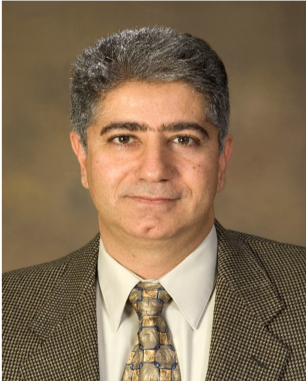
2020
Marwan Krunz
Marwan M. Krunz is the Kenneth VonBehren Endowed Professor in the Department of Electrical and Computer Engineering and a Professor of Computer Science at the University of Arizona in Tucson. His research is in the broad area of wireless communications and networking, with particular emphasis on resource management, distributed protocols, and security. In recent years, he has been involved in projects related to 5G systems; cognitive radios; coexistence of heterogeneous wireless systems over shared spectrum; WLAN protocols; network security; power-controlled channel access; centralized and distributed multi-user MIMO systems; mmWave communications; secure satellite communications; energy management in solar-powered WSNs; full-duplex communications; and media streaming over wireless links.
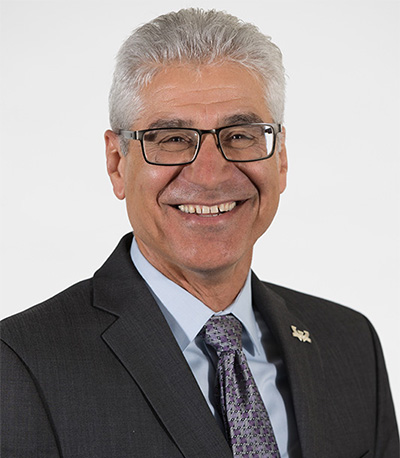
2019
Farshad Fotouhi
Farshad Fotouhi, dean of the College of Engineering at Wayne State University (WSU) in Detroit, will receive the Computer Science and Engineering Distinguished Alumni Award. He joined the computer science faculty at WSU inFarshad Fotouhi, dean of engineering at Wayne State University, will receive the Computer Science and Engineering Distinguished Alumni Award. 1988, upon completion of his Ph.D. in computer science at MSU in 1988. He served as chair of the WSU Department of Computer Science from January 2004 until being named dean in February 2011. Among his accomplishments, he oversaw the transition of the Department of Computer Science from the College of Liberal Arts and Sciences to the College of Engineering. His research interests include biomedical informatics, semantic web and multimedia systems. He has published more than 200 papers in refereed journals and conference proceedings. He received bachelor's (1981) and master's (1982) degrees in computer science from Western Michigan University.
2018
Tracy Camp
Tracy Camp, professor and head of the Department of Computer Science at the Colorado School of Mines, in Golden, Colo., will receive the Computer Science and Engineering Distinguished Alumni Award. She is also the founder and director of the Toilers, an ad hoc network research group. Her research focus is on wireless networking. She is a strong advocate of broadening participation in computing. She received a master's degree in 1989 in computer science.
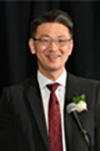
2017
Yunaho Liu
Dr. Yunhao Liu is the Cheung Kong Chair Professor and Dean of the School of Software at Tsinghua University, China. Just 18 years earlier (in 1995) he was awarded his bachelor’s degree in automation from the same institution. Yunhao attended MSU as a graduate student from 2001 to 2004, under the supervision of Dr. Lionel Ni for his master’s and Dr. Li Xiao for his doctoral degree in computer science and engineering. His research interests include RFID and sensor network, the Internet and Cloud Computing, and distributed computing. Upon graduation, Dr. Liu joined the Hong Kong University of Science and Technology as an assistant professor in 2004. He conducted the world’s first underground coal mine sensor network surveillance system in 2005-06, and for this contribution he received the Hong Kong Best Innovation and Research Award Grand Prize in 2007. Dr. Liu received early promotion to an associate professor in 2008. The following year he began his service as the postgraduate director of Computer Science and Engineering. He was the first to define the concept of node localizability, and won the first class Natural Science Award of the China Ministry of Education in 2010. He was named a National Natural Science Foundation of China (NSFC) Distinguished Young Scholar in 2011, and in 2012, received the Association for Computer Machinery (ACM)Presidential Award. Yunhao joined Tsinghua University as chair professor in 2013, and serves as dean of the School of Software. His book, The Introduction to IOT, is used as text book by more than 400 universities, and more than 150,000 hard copies have been sold. Dr. Liu has served as an associate editor/editor-in-chief for several IEEE and ACM publications, and is currently associate editor for IEEE/ACM Transactions on Networking and ACM Transactions on Sensor Networks. He has chaired/cochaired a range of industry conferences. He received four best paper awards including the prestigious ACM MobiCom 2014, and received the IOT Young Achievement Award in 2016. IN 2015 HE became a Fellow of both IEEE and ACM.
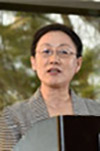
2016
Qian Huang
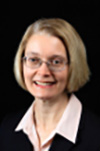
2015
Louise Hemond-Wilson

2014
Doug Zongker

2013
Keith Landau
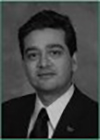
2012
Deepak Advani
Deepak Mohan Advani owns strategy and development for IBM’s Business Analytics products and solutions group. His portfolio includes products for business intelligence, predictive analytics, risk analytics, social media analytics, and financial performance management. He also owns the P&L responsibility for SPSS, which IBM recently acquired for $1.2 billion. From 2005 to 2009, Deepak was the chief marketing officer and senior vice president of eCommerce for Lenovo. Along with advertising, he relied heavily on sports marketing (Olympics, Formula 1, NBA), social media, corporate philanthropy, and PR to build brand awareness and generate demand. Under his leadership, Lenovo’s global brand awareness increased to 60 percent while maintaining high image and preference scores. He centralized the marketing operations in India, which reduced non-working expense by 65 percent over two years. As head of the global eCommerce business, he grew revenue by 45 percent to $400 million, and profits by 300 percent. In 2008, the Asian Brand Congress recognized him as Marketer of the Year. Before joining Lenovo, Deepak worked at IBM for 13 years where he held several global executive positions. During his two-year tenure as vice president and business line executive at High End Intel Servers, he increased IBM’s market share from 14 percent to 42 percent. Revenues increased by 85 percent to $1.1 billion, and gross profit increased by 170 percent. Deepak provided direction to more than 1,000 developers, established a new solutions oriented sales channel, and developed strategic alliances with companies like VMware and Citrix. As vice president of Linux Strategy, he helped craft the early strategies around Linux and open sources. He developed five key plays that drove more than $1 billion of IBM revenue. As director of High Performance Computing, he was part of the startup team that built a $1 billion business in four years. He led a development organization with more than 200 developers in five countries. In addition to obtaining his bachelor’s degree in computer science from MSU, he earned his master’s degree in computer engineering from Wright State University and his MBA from the Wharton School of Business. He currently serves on advisory boards at Wharton, Yale, and Michigan State. Deepak and his wife, Pooja, live in Morrisville, North Carolina. They have two daughters—Serena and Sneha.
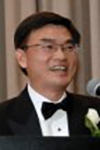
2011
Dr. Jianchang (JC) Mao
Dr. Jianchang (JC) Mao is vice president and head of advertising sciences at Yahoo! Labs, overseeing the R&D of advertising technologies and products including search advertising, contextual advertising, display advertising, targeting, and categorization. He was also the science/ engineering director responsible for the development of back-end technologies for several Yahoo! social search products, including Yahoo! Answers. Prior to joining Yahoo!, Dr. Mao was director of emerging technologies and principal architect at Verity Inc., a leader in Enterprise Search (acquired by Autonomy), from 2000 to 2004. Prior to this, he was a research staff member at the IBM Almaden Research Center from 1994 to 2000, after receiving his Ph.D. degree in computer science from MSU in 1994. Dr. Mao received the prestigious Yahoo! Leadership Superstar Award (for vice presidents and above) in 2010 for “his tremendous impact on Yahoo!’s advertising business and for exemplifying the Yahoo! leadership standard. His leadership in advertising sciences has yielded significant monetary benefits for Yahoo! and, more importantly, set the stage for significant innovation in advertising.” Two of his teams also received separate corporate awards in 2010 for delivering Yahoo!’s next-generation advertisement inventory management system that powers the guaranteed delivery display advertising system (with billions of dollars in revenue) and for delivering numerous innovations in sponsored search (also with billions of dollars in revenue). Dr. Mao received another Yahoo! Superstar Team Award (as a team co-captain) for delivering Keystone, a new generation of contextual matching product in 2008. During his tenure at IBM Almaden Research Center from 1994 to 2000, he received several IBM Outstanding Technical Achievement Awards and IBM Research Division Awards for outstanding contributions to the IBM postal address recognition system product, documents and forms processing systems, and intelligent character recognition technology. His research interests include machine learning, data mining, information retrieval, computational advertising, social networks, pattern recognition, and image processing. He has published more than 50 papers in journals, book chapters, and conferences, and holds 20 U.S. patents. Dr. Mao received an IEEE Transactions on Neural Networks Outstanding Paper Award in 1996 and an Honorable Mention Award from the International Pattern Recognition Society in 1993. He served as an associate editor of the IEEE Transactions on Neural Networks (1999-2000), and as a founding editorial board member (1997-2000) of the Pattern Analysis and Applications journal. He has served on the Technical Committee of the Web Intelligence Consortium since 2002 and on the MSU CSE Strategic Partners Council since 2009. Dr. Mao credits the training he received in the CSE department for his career success. He notes that Dr. Anil Jain, his adviser while he was at MSU, has become his long-time mentor. “I deeply cherish my Ph.D. experience at MSU,” he says. He and his wife, Yao Chen, also a CSE graduate, live in San Jose, California. They have two children: son David who was born while the couple was at MSU, and daughter Julie. Dr. Mao likes reading, jogging, and skiing.

2010
Vandy Johnson
Vandy Johnson is vice president of global IT infrastructure operations and support at Medtronic, a leader in medical technology based in Plymouth, Minnesota. He is responsible for leading the development, implementation, and support of a global IT infrastructure that supports and sustains the company’s business strategy. Last year, Vandy’s global infrastructure team won the SNW / Computerworld award for Best Practices in Virtualization and Cloud Computing and Nemertes Research PilotHouse innovation awards in three categories: Best Overall IT Innovator, Best Innovator for Sustainable Data Center and Best Innovator for WAN/ ACS/ Branch Office. Also in 2009, Medtronic IT was named one of Computerworld’s 100 best places to work and was cited as a member of the InformationWeek 500. Vandy earned his B.S. degree in computer science from Michigan State University in 1982. During his time at MSU, he worked as a programmer analyst for the state of Michigan’s Department of Natural Resources. Upon graduation, he joined General Mills, where he held numerous roles of increasing responsibility in IT, most recently as the senior director of information systems operations. In this role, he was responsible for worldwide IT infrastructure and system operations, including voice and data networks, security, enterprise data, computer operations, and technical services. In other roles at General Mills, he was responsible for company-wide SAP implementation; led corporate IT system development; was on the startup team for a new General Mills business—home delivery of restaurant quality food; and led General Mills syndicated market research, International IT, and IT infrastructure and operations. After more than 25 years at General Mills, he left to become vice president of global IT infrastructure at Medtronic. He is a life member of the MSU Alumni Association and a member of the MSU Jonathan L. Snyder Society. He currently serves on the Michigan State University College of Engineering Alumni Association Board; the MSU Department of Computer Science and Engineering Strategic Partners Council; the University of Minnesota, Carlson School of Business, Executive Advisory Board on Curriculum; and the Minnesota State University-Moorhead Computer Science & Information Systems Advisory Board. He also serves on advisory councils for Microsoft, Dell, and IBM. He is a senior member of the Association for Computing Machinery as well as a member of the Institute of Electrical and Electronics Engineers (IEEE), the computer society of the IEEE, and the communications society of the IEEE. He was a member of the review team for the IEEE Guide to the Software Engineering Body of Knowledge. He is also a Certified Data Processor (CDP), a Certified Systems Professional (CSP), and a Certified Computing Professional (CCP). Vandy and his wife, DeAnne, a senior IT manager for General Mills, have two children—Skip and Summer. They reside in Plymouth, Minnesota.

2009
Dr. Martha L. Gray
Martha L. Gray has had a multifaceted academic career in which she has conducted research to better understand (and possibly prevent) osteoarthritis; led a preeminent academic unit in which engineers, scientists, physicians, and business professionals seek to advance human health; and served the profession through work with organizations and institutions. She is the J.W. Kieckhfer Professor and former director of the Health Sciences and Technology (HST) Division of Harvard and the Massachusetts Institute of Technology (MIT). She is also a professor in MIT’s Department of Electrical Engineering and Computer Science. She earned her B.S. (’78) in computer science/systems science from Michigan State University, an M.S. (’81) in electrical engineering from MIT, and a Ph.D. (’86) in medical engineering from HST. Following postdoctoral work at Tufts University and the State University of New York Stony Brook, she joined the MIT faculty in HST and MIT’s Department of Electrical Engineering and Computer Science in 1987. Professor Gray was the first woman to lead a science or engineering department at MIT. During and since her 13-year tenure as head of the Harvard-MIT Division of Health Sciences and Technology (HST), she shepherded the vigorous growth so that now HST boasts a community of over 400 students, 65 faculty, and nearly 200 affiliated faculty who create a multi-disciplinary and multi-professional environment—in classrooms, hospital rooms, and laboratories. This community is focused on advancing human health, and students who train in this environment (MD, Ph.D., M.S., MBA) come out unusually well prepared to lead and innovate. Most recently, Professor Gray has directed her efforts toward advising other institutions and governments as they seek to develop similar efforts. Professor Gray’s research has centered on understanding osteoarthritis. She was among the first to demonstrate that mechanical (and other physicochemical) factors could dramatically influence the production of cartilage macromolecules that provide cartilage with its remarkable load-bearing capacity—thereby lending support to the belief that these factors play an important role in cartilage development, degeneration, and repair. More recently she and colleagues have pioneered new ways to image cartilage in vivo and in vitro. Many in industry and academia are now using the MR method developed by her group (known as dGEMRIC) to provide a window into how disease and therapeutic strategies affect cartilage tissue before it is destroyed by disease, thereby providing information that has previously been unavailable with routinely used imaging methods. The significance of her accomplishments was recently recognized by the American Academy of Orthopedic Surgeons and the Orthopedic Research Society’s Kappa Delta Award. She is an elected fellow of the AAAS and of the American Institute of Medical and Biological Engineers (AIMBE), and has served in several elected positions for professional societies and on many advisory boards. She is associate editor of the Annual Reviews of Biomedical Engineering. She currently resides in Arlington, Mass., with her husband and boat builder, Dick Pereli, and her three teenage children—Andrew, Dora, and George.
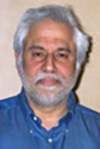
2008
Moti Jiandani
Moti Jiandani has had an impressive career in information technology, founding two successful companies. Moti’s first company, founded in 1991, was Sierra Atlantic, which provided engineering services to high technology clients such as 3Com, Oracle, Cisco, and Synopsys. In 1998, he founded and served as president and CEO of SwitchOn Networks. They began by providing engineering services to clients such as 3Com, Nortel, MMC Networks, and Cisco, then successfully transitioned the company on two parallel tracks: from a services company to a product company, and from a software company to a fabless semiconductor company. Under his leadership, the company pioneered the concept of high-speed content processing coprocessors. They provided standard semiconductor and software components to the emerging market of content and policy based networking, which enable applications such as QoS, Load Balancing, URL Switching, and VPN Firewalling at wire speed exceeding OC-48 speeds. The company’s patented technology enabled them to build devices that are scalable in both performance and the number of policies they support. SwitchOn was acquired by PMC-Sierra in 2000 for $450 million, providing a 28-fold return to investors and shareholders in a short 10 months. In 2001, Moti became president and CEO of Kuoka Networks in Sunnyvale, California. In an 18-month period, he built the team from 7 to 110 and brought a complex software intensive and 14-slot chassis-based modular system to the alpha testing phase at a cost of less than $17 million. However, in an uncertain market following the attacks on 9/11, the board of directors shut down the company as a result of its inability to raise its second round of financing. Moti earned a B.S. in electrical engineering at the University of Bombay in India (1978), then earned his master’s at MSU. After graduation, Moti worked for ten years in software development and marketing for several California companies, including Integrated Solutions and Intel Corporation, before starting his own companies. His wife, Soni, is co-founder and vice president of marketing at Nuova Systems in San Jose, California. She has spent more than 21 years as a technology executive with information technology startups as well as established industry leaders such as Cisco Systems, where she served as VP/GM prior to founding Nuova. She is known for successfully taking new technologies to market and helping companies achieve high levels of market acceptance. Moti and Soni live with their teenaged sons, Farid and Kabir, in Saratoga, California. Moti’s father lives with them. For now Moti is a fulltime husband, father, and son. He “keeps his hand in” by providing guidance and counsel to his friends and select companies on starting new high-tech ventures in Silicon Valley. He also makes investments in commercial real estate. He is contemplating imparting some of the knowledge and training he has acquired to others in a more formal setting.

2007
Dr. Honda Shing
InterVideo, Inc.
Honda Shing, a native of Taiwan, is a successful entrepreneur and innovative software engineer. He began his professional career prior to graduation, serving as system manager for MSU’s computer science department as a Ph.D. student, where he made many significant contributions to the department’s research computing facilities. His PhD thesis solved a well-known difficult problem in the design of shared-memory multiprocessors. He developed a set of tools and scripts to efficiently manage a networked multiserver computing environment, which became known as “Honda Normal Form” and was adopted by other organizations. Upon leaving MSU, Honda joined Unisys Corporation in San Jose, California, as a senior software engineer, continuing his work on multiprocessor operating system design. He started his own business in 1995—developing tools for rapid development of application software systems. In 1998, he co-founded InterVideo as chief technology officer, along with Steve Ro, president and CEO. He initially operated from his apartment in the Bay Area. InterVideo soon became a leading provider of digital video disc (DVD) software. Their first product, WinDVD, an application for viewing DVDs on a PC, corresponded with the initial surge in demand for DVD drives. InterVideo was the first company to build a version that worked on all Windows systems and the first to provide a Lynx DVD software player. The cross-platform advantage helped InterVideo secure bundling deals with 13 of the 15 largest PC manufacturers worldwide. A year after the WinDVD’s introduction, the company was the leading provider of DVD software. InterVideo went public in 2003. Their revenue had advanced 1,012.2 percent, making it the second fastest-growing private company in the Bay Area. By 2006, InterVideo had 803 employees worldwide, with regional offices in Europe, Taiwan, and Japan. Their revenue was approximately $125 million, with more than 35 percent derived from the Japanese market. The company offered a broad suite of advanced digital video and audio multimedia software products that allowed users to record, edit, author, distribute, and play digital multimedia content on PCs and other devices. The company provided its software in up to 27 languages. Around 200 million copies of the products have been shipped with PCs from major OEMs around the world. InterVideo was recently acquired by Corel Corporation of Canada for a reported $198.6 million. Honda lives in San Mateo, California, with his wife, Anne, and their three-year-old son, Daniel. He is an enthusiastic supporter of the College of Engineering and MSU. Being a dedicated Christian and Sunday School teacher, his next goal in life is to further prepare himself for Christian ministry. For his personal interest, he also plans to re-enter school to pursue the study of physics.
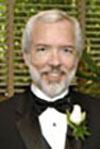
2006
James Von Ehr
Zyvex Corporation
James R. Von Ehr II, a 1972 computer science graduate and entrepreneur, has established the James Von Ehr Scholars Program, a $1 million endowed scholarship fund to benefit College of Engineering undergraduates. Von Ehr, who has long demonstrated his commitment to MSU and the college through service and philanthropy, made the official announcement at the College of Engineering commencement ceremonies on Sunday, May 7. “In creating this scholarship, my intention is to provide financial assistance to outstanding undergraduate students who come from humble backgrounds, as I did,” he says. Born in Grand Rapids and raised in New Buffalo, Michigan, Von Ehr was first recruited to MSU as a National Merit Scholar and studied computer science in the era of punch cards and paper printouts. He says the immensity of MSU was quite an eye opener when he arrived as a freshman. Of Brody Complex, his first MSU residence, he says, “I was surrounded by the same number of people as the population of my hometown, but they were all my age! “The education I got here at MSU made a big difference in my life. I want to extend some of the same opportunity that I have enjoyed to those who come after me.” This spring, four freshmen will be selected to each receive a $4,000 scholarship for fall semester 2006. Qualified prospective students—those scoring in the 90th percentile and above on national placement exams and who have a proven financial need—will be invited to apply for the scholarships, which are renewable for four years. Incoming freshman applicants will be required to write a brief essay that describes their idea of the meaning of “free enterprise,” “liberty,” and “open world markets,” and relate how these principles help to promote creativity and the transmission of technological benefits to different world cultures and society in general. “Von Ehr Scholars should become good communicators, because technology should be the servant of humanity, and communication is vital to society’s understanding and acceptance of technology,” says Von Ehr. For more than 20 years, Von Ehr has made significant contributions to the computer software and nanotechnology industries. After completing his bachelor’s degree, he was employed by Texas Instruments (TI) as a software engineer, programming computer graphics in the company’s computer-aided design division. Later, he was a manager and senior member of the technical staff. In 1981, he earned his MS degree in mathematical sciences (computer science) from the University of Texas at Dallas. He then founded his first company, Altsys Corporation--the developers of FreeHand and Fontographer software programs--and served as CEO and chairman from 1984 to 1995. He then sold the company to Macromedia, where he was subsequently a vice president and served on the board of directors. His current interest is in the developing field of nanotechnology. He is the founder, chairman, and chief executive officer of Zyvex Corporation, a leading nanotechnology company located in Richardson, Texas. He is widely considered to be a nanotechnology pioneer and is regarded as an industry leader in that field. He has delivered more than 100 invited talks to well over 10,000 people worldwide and has 6 patents in software and nanotechnology. He was also instrumental in the passage of the 21st Century Nanotechnology Research and Development Act, which authorized $3.7 billion for research and development programs for four years, and he was present in the Oval Office when President George W. Bush signed the bill into law. In addition, Von Ehr has been a long-time supporter of the College of Engineering, particularly the Department of Computer Science and Engineering (CSE). He served on the college Alumni Board and on the CSE Board of Visitors/Strategic Partners Council. He is presently a college campaign consultant for The Campaign for MSU. In recognition of his many achievements, he received the MSU Distinguished Alumni Award in 2004. In 2006, he received both the Computer Science and Engineering Distinguished Alumni Award and the Claud R. Erickson Distinguished Alumnus Award in the College of Engineering. He was named Ernst & Young Entrepreneur of the Year in 2003, and was awarded the City of Richardson’s Ernest Randall Award for Economic Development in 2004. “My hope is that Von Ehr Scholars will become leaders and pathfinders who improve the world by building links from technology to society by their entrepreneurial action,” he says. “I also hope, and expect, that my example leads them to give back to the next generation of MSU students and to the greater communities in which the Scholars operate.” “Our college and our community have already benefited tremendously from Jim Von Ehr’s ongoing dedication and support. He is a remarkable alumnus,” says Satish Udpa, acting dean of the College of Engineering. “Now, this generous contribution comes at a time when recruitment of outstanding students to the fields of engineering and science couldn’t be more critical for our state and our nation. The Von Ehr Scholars Program will enable some of the top students in the country—many of whom may otherwise be unable to attend MSU—to achieve their dreams of becoming engineers.” Tom Wolff, associate dean for undergraduate studies, adds, "Students in the top ten percent of the nation's graduating seniors are widely recruited by many, many schools. The size of these scholarships will give the MSU College of Engineering significantly more capability to attract students of this caliber to MSU.” “And one of my wishes,” says Von Ehr, “is that all Von Ehr Scholars will enjoy the fellowship and intellectual challenge of each other while on campus.” To that end, each fall, all Von Ehr Scholars will gather to meet each other, to network, and to select from voluntary service projects that serve the college, the community, or the engineering profession. There will be additional opportunities each semester for the recipients to interact with one another and meet with college administrators, faculty, and special visitors. A reception and dinner will also be held annually on campus to honor the new recipients of the scholarships. Designating the fund as an endowment means that the principal of the gift will be invested and only a portion of the investment earnings will be spent annually to distribute the awards. This allows the fund to be reinvested for growth and eventually helps many more students over time, as opposed to an expendable fund, which is depleted once the original gift is spent. “I am very grateful for the opportunities that I have had in life,” Von Ehr says. “I benefited greatly from being born in the United States, where our unique mix of free enterprise and liberty offers residents the opportunity and freedom to achieve our human potential. I hope that this gift, this program, and the Von Ehr Scholars themselves, will always promote the ideals of human advancement through the enabling factors of individual liberty, free markets, and the rule of law--not only in this country, but around the world.”
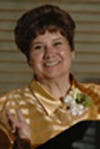
2005
Julie Louis-Benaglio
Hewlett-Packard
Julie Louis-Benaglio recently celebrated her 25th anniversary with Hewlett-Packard in Livonia, Michigan. She has provided technical consulting to HP customers across the United States, and overseen numerous customer computer system implementations. In her current position, she delivers technical support services to HP’s mission critical/high availability and strategic accounts within Michigan. Her responsibilities lie in proactively maintaining a high level of technical and operational expertise while tracking industry trends. Familiarizing herself with her customers’ IT environments and business goals, she plays a lead role in delivering complex solutions. Over the years HP management has honored her with Most Valuable Player and Top Performer awards for outstanding customer support. Julie’s membership in the Society of Women Engineers (SWE) began in the student chapter at MSU, and carried over to membership in the Detroit Area Professional Chapter of SWE. While a student at MSU, Julie was one of a handful of women in the College of Engineering. In her zeal to support females in technical fields, she has judged science fair experiments and spoken at several career day assemblies in local schools to encourage girls to pursue technical studies. She has also served for more than 10 years as professional field counselor to MSU’s student chapter of SWE. Julie has served on the alumni board of directors for the College of Engineering and various advisory committees for the Department of Computer Science and Engineering. She recently established the Julie Louis-Benaglio Endowed Excellence Fund, which supports the Department of Computer Science and Engineering and the MSU student chapter of SWE. With this endowment, which includes HP matching funds, Julie’s intent is to provide scholarship funds for female students pursuing a degree in computer science and engineering and to support SWE activities such as attendance at national conferences. Julie’s husband, Jim, is an electrical engineer and University of Michigan graduate. Their mutual love of music and guitar playing brought them together in a church folk group. Their school rivalry is obvious only on MSU vs. U of M game days. Jim and Julie have two daughters, Jessie and Jamie, both of whom demonstrate strengths in math, music, and sports. Their collegiate preferences are undetermined, but Julie has made clear her allegiance to the green and white.
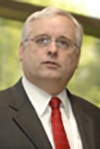
2004
Kevin Ohl
Crowe Chizek and Company, LLP
Kevin Ohl graduated from Michigan State with a B.S. in Computer Science in 1978 and an MBA in Accounting in 1981. He passed the CPA examination in May 1981 and although he focuses primarily on business and technology consulting, he is a CPA registered in the State of Illinois. Photo of Kevin J. OhlIn July 1981, Kevin joined Crowe Chizek and Company LLC, a leading provider of assurance, consulting, risk management, tax and technology services to large and middle-market public companies and large privately-held businesses. He is currently an Executive with Crowe Chizek and Company LLC and serves on the Executive Board of Crowe Chizek. Kevin assists clients with developing technology strategy, supervises projects related to implementation of business processes and systems, with a primary focus in the state and local government sector. Kevin has been active in industry groups and on advisory boards to various technology vendors. He has been active in charitable organizations, serving in leadership roles for Public Television and United Way. He is currently a member of the Executive Board of the Cornerstone Foundation in Chicago, Illinois. Kevin was heavily involved with the Computer Science Department even before becoming an active alumnus. He served in a number of roles as an undergraduate, beginning as a teaching assistant during his sophomore year and eventually becoming a course administrator for the entry level computer science courses. Upon entering his MBA program, Kevin assumed instructional responsibility for these entry-level courses and also taught COBOL Programming. Finally, Kevin served as a non-faculty representative on the Computer Science Department's Curriculum Committee. Kevin is an "engaged alumnus". He serves on the CSE Department's Strategic Partner Council and on the College of Engineering's Alumni Board. He works actively with the CSE Department presenting to classes and participating in extracurricular events. He also has been a key participant in the CSE Department's semi-annual graduation receptions with his remarks from an alumni perspective. Kevin and his wife Sue are Hannah Society members and he continually advocates for MSU both within and outside of Crowe Chizek. He was responsible for organizing an annual contribution from the MSU alumni at Crowe Chizek and Company LLC; this contribution has resulted in an endowed scholarship fund that awards annual scholarships to CSE students. Kevin also established the Emerson and Dorothy Ohl Scholarship Fund for a similar purpose. Kevin was the recipient of the 2004 CSE Department Distinguished Alumni Award.
The commencement breakfast tradition for the CSE department began in 1997 and has continued for all subsequent Fall and Spring Graduations. All images of this event are saved on the Engineering Photo Library.
